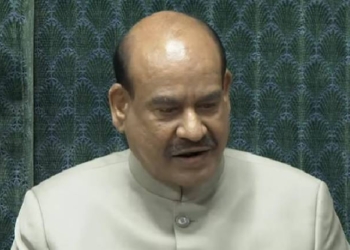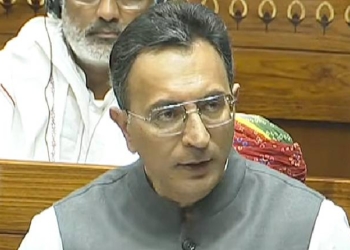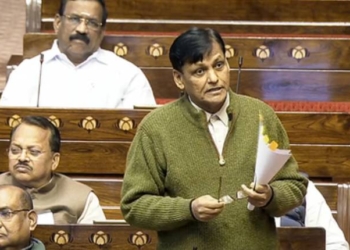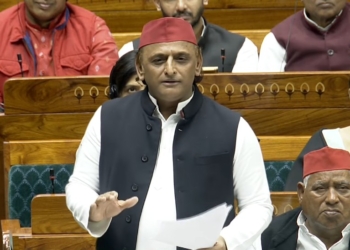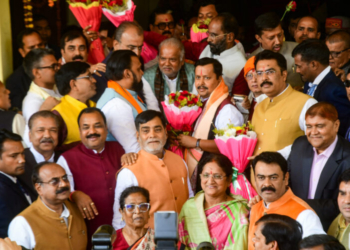New Delhi: In the 77th year of Independence, when the country has conquered the moon and is on the way to the Sun, the political system is unfortunately heading for a tailspin.
Never before, except for maybe the Emergency period, has the country witnessed this kind of political atmosphere. It is not that there is any bloodshed or persecution, or opponents are being jailed or forced into submission, but it is beyond all this.
An atmosphere of apprehension fuelled by an open show of intolerance has injected a sense of negativity into today’s political landscape.
There is a political party which openly calls for the eradication of the majority religion. Then there is a block of political parties that gives a call for boycott of a section of the media, and another has been canvassing for the wipeout of a political party.
The toxicity seems to be directly proportional to the number of months left for the 2024 Lok Sabha elections. As the deadline nears, the severity of the political attacks is also increasing. It is not just the 2024 elections, in fact all polls, whether for the panchayats or municipal bodies or the state Assemblies held in the past few years, have seen noxious campaigns.
The elections have become less violent, except for West Bengal, over the last three decades. There, however, is this tendency to view political opponents and parties as enemies. Narratives are created and floated to mould opinions. Hyping a narrative and slandering the opponent is the ultimate weapon.
Anything that creates a wave and causes a favourable EVM button press is the only goal for the political leaders and parties. While their cooked-up narratives bring them votes, the entire line of thinking is pernicious. The effect of narratives never ebbs with the swearing-in ceremonies; it continues to exist in people’s minds and hearts.
The wedge is deepening, but does any political leader or party care? DMK has given an open call for the eradication of Sanatana Dharma. An RJD leader has attacked Ramcharitmanas. Samajwadi Party’s Swami Prasad Maurya has called Hinduism a hoax. All these parties are part of the opposition INDIA bloc. The BJP, which has been rattled by the bloc’s name and unity efforts, could not have got better weapons to go against the grouping.
Prime Minister Narendra Modi told his party colleagues to give a “proper response” to DMK leader and Tamil Nadu Minister Udhayanidhi Stalin for his remarks on Sanatana Dharma. While recently addressing rallies in Madhya Pradesh’s Bina district and Chhattisgarh’s Raigarh, he launched a frontal attack on the Indian National Developmental Inclusive Alliance (INDIA) and accused it of having a hidden agenda of “disintegrating Sanatana Dharma”.
Echoing the sentiments and taking PM Modi’s words further, Assam Chief Minister Himanta Biswa Sarma dubbed the upcoming Lok Sabha polls as a “civilisational fight” in which the people of the country will vote for “protecting the Sanatana Dharma”.
“The remarks against Sanatana Dharma show that the alliance has been formed with the sole intent to destroy our civilisation and culture. Hence, I see the Lok Sabha polls as a civilisational fight in which the people of the country will take part to protect Sanatana Dharma,” Sarma said.
The DMK’s stand on Hinduism may suit its political calculations in Tamil Nadu, but it certainly has put the INDIA bloc in a dilemma. The Sanatana Dharma row is gradually snowballing into a major issue, threatening to overshadow all else because it touches the belief systems of too many people.
Amid this row, the opposition alliance came up with the boycott of a section of the media. On September 14, the INDIA bloc announced it will boycott shows of 14 television anchors across platforms. The Congress justified the action, saying “some channels have put up a nafrat ka bazaar (market for hatred) for the last nine years”.
The move is unprecedented, anti-democratic and a threat to media freedom. This boycott is a reminder of the Emergency era which was helmed by the Congress led by Rahul Gandhi’s grandmother Indira Gandhi, when independent opinions and voices were gagged.
The News Broadcasters & Digital Association (NBDA) responded by saying, “The decision taken by the I.N.D.I.A. Media Committee sets a dangerous precedent. The ban on representatives of the opposition alliance from participating in TV news shows anchored by some of India’s top TV news personalities goes against the ethos of democracy.”
Naming and ‘shaming’ journalists doesn’t set a good precedent and betokens intolerance. “The Opposition alliance claims to be the champion of pluralism and a free press, but its decision betrays callous disregard for democracy’s most fundamental tenet — the inalienable right to openly express ideas and opinions,” the NBDA said.
During an interaction with journalists at the National Press Club in Washington, D.C. in June, Rahul Gandhi had said, “There is definitely a weakening of press freedom in India. It is apparent in India and the rest of the world can see it too. Press freedom is very critical for a democracy. One should be open to criticism.”
With the INDIA bloc publicly naming journalists, it is openly dividing and categorising the media as “unfavourable” and “favourable”, which certainly is against media freedom.
As the time nears the 2024 Lok Sabha elections, the virulence of the political parties will grow all the more. But before the big LS elections, a round of balloting this winter is due for Rajasthan, Madhya Pradesh, Chhattisgarh and Telangana. Narratives and poll maths will revolve around caste, religion, region, language, and so on, and the issues concerning the masses will hardly take the centrestage.
The 77th year seems to be no different from all the earlier ones, except that Chandrayaan-3 is rocking on the moon, Aditya L1 is heading to its destination Sun, Praggnanandhaa almost pipped Magnus Carlsen, Neeraj Chopra clinched the gold in the men’s javelin throw event at the World Athletics Championships, India beat Pakistan in Sri Lanka, Manipur is not getting normal, Army and police officers have died in a terror gunbattle in J&K, and tomatoes are buyable all over again.
(IANS)




